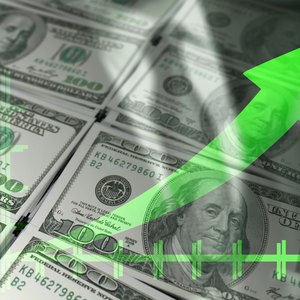
Inflation is currently increasing at the highest rate seen in decades. It is the responsibility of the Federal Reserve Bank to take monetary steps to control economic activity and reduce a high inflation rate. One tool that the Fed uses to control inflation is to raise and lower the federal funds rate that banks charge to lend money to each other overnight.
The interest rates that financial institutions, such as banks and credit card issuers, charge their customers is based on fluctuations in the Fed funds rate. Rate hikes by the Fed will lead to higher interest rates for consumers.
The Fed has already raised the fed funds rate by a one-half percentage point and is expected to post another three-quarter point increase on top of that. Economists expect to see more rate changes before the end of the year.
Here are the consequences that Fed interest rate hikes may have on your borrowing costs and personal finances.
Effect of Fed Rate Hikes on Inflation
The good news for Americans is that if the Fed rate hikes have their intended effect, economic activity will slow down, and inflation rates will decrease. This will lead to declines in everyday living expenses, especially food and gasoline prices, and will reduce the strain on everyone's budget.
The bad news is that interest rates that consumers pay on loans and credit cards will become more expensive. Higher interest costs mean less disposable income for households and less money going into savings accounts.
Rate hikes by the Federal Reserve Bank may reduce inflation, but they will also have a negative effect on everyone's personal finances.
Credit Cards
Although credit card rates are already high, they're about to go up even more as a result of the Fed rate increases. Interest rates on credit cards are usually adjusted every month based on a benchmark interest rate such as banks' prime rate to its most credit-worthy customers.
Consumers with high levels of credit card debt should focus on reducing their credit card balances as quickly as possible.
Mortgages
Although hikes in the fed funds rate usually have a more direct effect on short-term interest rates, they will eventually lead to increases in long-term mortgage rates.
Higher mortgage interest rates will make it more difficult for potential home buyers to qualify for a home loan and monthly payments will be higher, consuming a larger percentage of a family’s household income.
If you're shopping for a house now, it would be a good idea to lock in a fixed rate mortgage before interest rates go up even further.
Variable Rate Loans
If you currently have a mortgage or a home equity line of credit with an adjustable-rate, these interest rates will soon be going up since they are typically adjusted monthly or quarterly.
Auto Loans
Rates on new and used car loans will likewise increase. As a result, loan payments on auto loans will go up and maybe force buyers to spend less on the cars they want to buy. For example, if you're looking to buy a car that costs $30,000, you may have to reduce your target price to $25,000 to get a monthly payment that you can afford.
Housing Prices
Housing prices will likely go down. As inflation consumes more of household incomes, less money is available for savings for down payments, making it more difficult to qualify for a mortgage. This will affect the housing market by reducing the demand for houses and leading to a drop in prices.
Savings Accounts and Certificates of Deposit
Savers will be pleased since the rates paid on savings accounts, money market accounts and certificates of deposit will finally be going up. After having been receiving abysmally low rates for years, savers will now be able to find higher interest rates above 3 percent on savings accounts at online banks and credit unions.
References
Writer Bio
James Woodruff has been a management consultant to more than 1,000 small businesses. As a senior management consultant and owner, he used his technical expertise to conduct an analysis of a company's operational, financial and business management issues. James has been writing business and finance related topics for work.chron, bizfluent.com, smallbusiness.chron.com and e-commerce websites since 2007. He graduated from Georgia Tech with a Bachelor of Mechanical Engineering and received an MBA from Columbia University.

